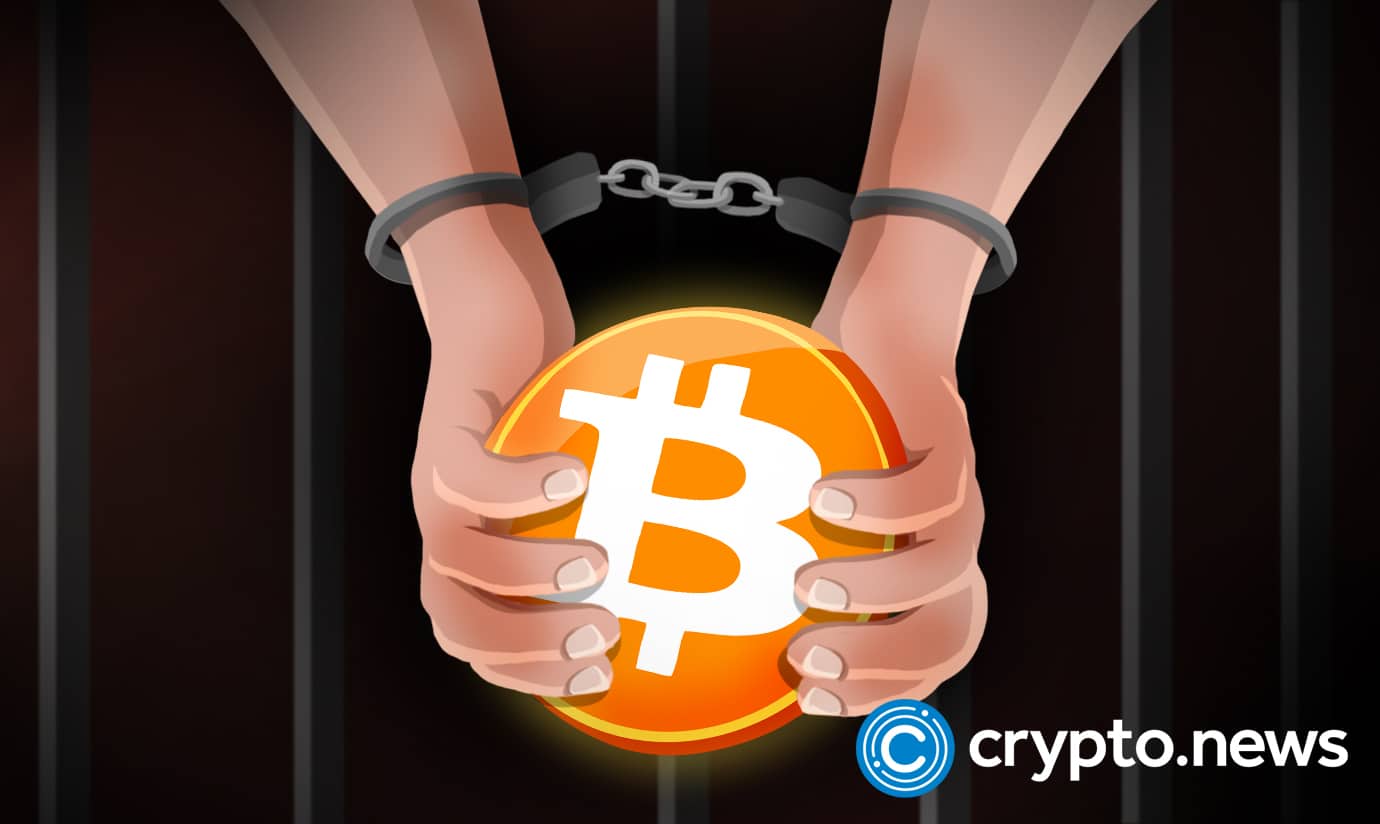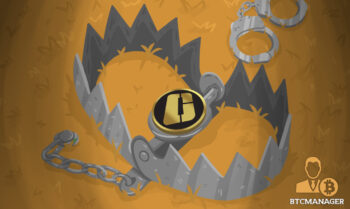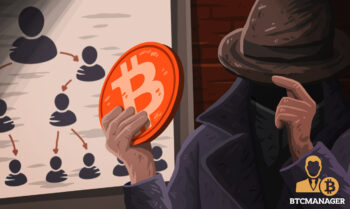2019-9-14 04:36 |
A common accusation toward Bitcoin: It’s a pyramid scheme. For BTC holders to profit critics claim it’s necessary to sell to other “suckers” at an even higher price. This is fundamentally wrong.
Anatomy of a PonziA Ponzi scheme is an investment scam promising outrageous returns with little risk. Similar to a pyramid scheme, early backers profit from new investors. When investors stop joining the scheme collapses.
Some examples of historical Ponzis include the ones perpetrated by Bernie Madoff and Allen Stanford, which used finance firms as fronts to con people out of billions. Notable crypto Ponzis include BitConnect, OneCoin, and Plus Token.
Critics, like Nouriel Roubini, are adamant that Bitcoin is a Ponzi. For early adopters to profitably unload their cheap Bitcoins it’s necessary for them to bring in new investors, he claims. These early adopters have a vested interest to tout Bitcoin and get other people to buy into the technology.
And, with Bitcoin cheerleaders like Anthony Pompliano and Rhythm Trader—who likely have conflicts of interest via large holdings—it’s easy to understand why an outsider may think bringing in new “fools” is necessary.
Greater fool theoryBitcoin’s mischaracterization as a pyramid scheme is closely related to commonly-held belief that its success depends on the “greater fool theory.” The greater fool theory applies to assets which are priced based on the irrational expectation of profit by future market participants rather than the intrinsic value of the asset.
Said simply, greater fools are people who buy an asset because they believe they can turn around and sell it to someone else for a profit, who then sells it to another fool for a profit, and so on, until the bubble pops.
Some examples of assets that relied on the greater fool theory include the Beanie Babies craze of the 1990s, precious metals like gold, and other collectibles like CryptoKitties.
Another prime example of this phenomenon is the speculative altcoin bubble of 2017. Unqualified teams based in loosely regulated jurisdictions, like Eastern Europe and Southeast Asia, were able to raise millions through ICOs by the mere inclusion of blockchain or tokenization on top of any far-fetched idea.
After witnessing overnight 10x gains, rather than evaluate the potential value these startups could create, speculators instead looked at the “hype factor” of coins—their ability to quickly flip them on to other speculators.
Is Bitcoin for fools?Admittedly, a large segment (perhaps even the majority) of people participate in Bitcoin because they expect to turn a profit. Speculation is a large contributor to the extreme volatility experienced by BTC.
However, unlike a pyramid scheme, Bitcoin doesn’t require new investors to sustain itself. As explained by respected, anonymous Bitcoin researcher Hasu:
“The expected value of a pyramid scheme decreases the later we are in the adoption cycle. But the expected value of a network good, like money, increases as it becomes more useful and more people own it.”
Networks grow exponentiallyThe idea behind networks is that their value increases exponentially with the number of users. The concept is famously codified in Metcalfe’s law, which states that the value of communication technologies—such as the internet, social networks, and Bitcoin—is proportional to the square of the number of users (n^2) on the network.
These effects can create positive feedback loops. As more people join a network it can create a bandwagon effect, where the rate of user adoption accelerates as the value of a network increases.
Fundamentally, it’s obvious Bitcoin benefits from network effects. As a currency, the more people that recognize BTC and accept it as tender the more valuable it becomes. As Bitcoin becomes more traded and liquid the more useful it becomes for large, multi-million dollar settlements.
Bitcoin has real valueThe major difference between Bitcoin and other commodities hinges on this idea of a “network good.” Unlike precious metals and collectibles, Bitcoin has underlying utility as a method of settlement and a store of value.
Charlie Lee succinctly described the problem Bitcoin solves in a September interview with CryptoSlate:
“Today, if I want to send a large amount of money overseas then I have to do a wire transfer, it costs $20-35 per transfer, and it takes half a day. And you have to jump through hoops to make that happen. And it can be censored, and potentially even reversed.”
Tens of billions of dollars worth of BTC are transacted every month over the blockchain network. Over the last three months, Bitcoin facilitated an average monthly payment volume of $23 billion.
For reference, Venmo facilitated an average of $8 billion in total payment volume per month in Q2 of 2019. PayPal’s cross border total payment volume averaged $10 billion per month, less than half of the value moved over Bitcoin. PayPal has a market capitalization of $122 billion to Bitcoin’s $185 billion. (Note, this is an apples-to-oranges comparison and is merely useful for conceptualizing the scale Bitcoin operates at.)
Unlike PayPal, people in countries with unreliable monetary regimes such as Venezuela, Argentina, and Turkey can use Bitcoin as a difficult-to-confiscate store of value. PayPal is notorious for holding or delaying customer funds and capitulating to the demands of authoritarian governments. Bitcoin, not so much.
Never too late to adoptSince Bitcoin benefits from network effects there’s never a point where it’s “too late to buy,” continued Hasu. Unlike a pyramid scam where the value to investors decreases the later a person joins, for a network good it’s the opposite.
Yellow (market share), blue (adoption curve). Source: Hasu“Because Bitcoin becomes more useful the later in the adoption cycle we are, there is never a point where a marginal buyer can lose from adopting it,” concluded Hasu.
When looking at the overall history of Bitcoin, the vast majority of investors will have gained from purchasing the cryptocurrency. This is observable when analyzing the realized price per Bitcoin, which measures the average BTC purchase price.
The average investor has only been at a loss three times in BTC’s history (highlighted in red). Source: Coin MetricsToday, the average price paid per Bitcoin by investors is approximately $5,700 per coin. This means that investors, in aggregate, are up 82 percent on their BTC investment. When looking at more granular data the narrative is even more promising.
Source: Into The BlockThe “In/Out of the money” calculation determines the price brackets where people purchased their coins and whether the investment was profitable or not. If the current market price is greater than the average cost basis then the address is “in the money.”
Currently, the overwhelming majority of addresses—80 percent—would record a gain if they sold today.
Parabolic speculation or fundamental value?People lose money with BTC when short-term expectations rapidly outstrip network growth. Most recently, this was seen in the market frenzy of 2017, which took Bitcoin from $1,000 to a peak of nearly $20,000 by the end of the year. And here is where the greater fool theory applies. When fear-of-missing-out (FOMO) drives people to over-leverage themselves through credit cards and margin trading then the market is reaching the end of a bull cycle.
But, from a fundamental perspective, the longer Bitcoin exists and the more people use it to transact the more valuable it becomes.
And, unlike commodities, the infrastructure around the original cryptocurrency is also improving rapidly. Ways to store and send Bitcoin will improve, fiat on/off ramps will become more widely accessible, and second-layer upgrades such as Lightning Network will help the network scale.
Rebutting criticsNow to answer the original question, is Bitcoin a Ponzi scheme? Potential investors only need ask themselves whether a mature Bitcoin system is genuinely useful, argued Hasu.
If yes, there’s no reason to expect the system to collapse if more people join (or if people stop joining). Bitcoin as a system will become more valuable over time, and thus, its price will appreciate as more people value it and adopt it.
Looking at the big picture it’s still early in Bitcoin’s adoption curve. As the network value of Bitcoin accelerates its utility will likely become more and more evident.
In contrast to the old adage, over the network’s history the second-best time to adopt Bitcoin was 10 years ago. But truly, the best time to adopt the technology is now.
The post No, Bitcoin isn’t a Ponzi appeared first on CryptoSlate.
origin »Bitcoin price in Telegram @btc_price_every_hour
Bitcoin (BTC) íà Currencies.ru
|
|


















